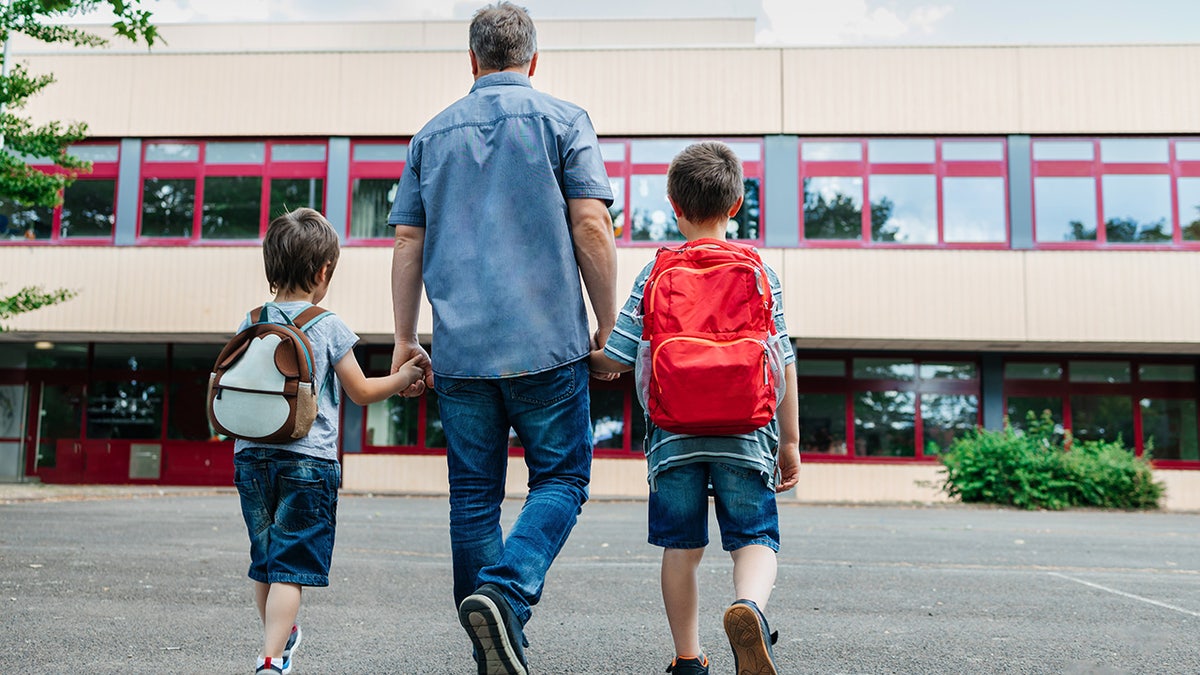Tips and tricks to prepare for back to school
Founder & CEO of Success Academy Eva Moskowitz on how to prepare your children to head back to the classrooms as well as how to make sure they get enough sleep and cut back on screen time.
As the summer days slowly come to an end, the excitement of a new school year approaches. However, for many students (parents too), this anticipation can be marred by the looming worry of back-to-school stress.
The pressures of academic performance, social interactions and the uncertainties of the future can lead to overwhelming feelings of anxiety and apprehension for many.
Back-to-school stress is not a mere fleeting sentiment; it is a legitimate concern that can have consequences on a child’s well-being. From elementary to university, children are behind in their academic and social skills because of the COVID pandemic. Students "lost out on about 35% of a normal school year’s worth of learning" when in-person learning stopped, according to research published in Nature Human Behavior.

Back-to-school stress is a legitimate concern that can have consequences on a child’s well-being. (iStock)
Now, children are tasked with recouping that learning loss, but they are also lacking in the skills to cope with this challenge. Add to this the complex web of social interactions, and it becomes evident why so many young minds are feeling the weight of stress on their shoulders.
BACK-TO-SCHOOL MENTAL HEALTH: HOW TO CHECK IN WITH YOUR KIDS BEFORE PUTTING THEM ON THE SCHOOL BUS
International studies looking at children of all ages, ranging from preschool to college age, found that COVID policies greatly affected mental health and behavioral issues, exacerbating problems from hyperactivity to depression.
Recognizing the severity of these issues is the first step to helping kids get back on track and beat the school time blues. It took a few years, but federal agencies are finally sounding the alarm on the devastation the pandemic had on our kids. Addressing the learning loss requires a comprehensive and holistic approach that involves parents, teachers, schools and communities working together.
The biggest thing we can do as parents is to get more involved with our children’s learning and daily lives, whether it is sitting and doing homework together or choosing a school that is right for your child. As parents, it is our job to check in with our children and ensure they are getting the support they need.
When parents can choose a school for their child, they become more invested in their child's education. This engagement can lead to improved student outcomes and a more supportive learning environment.
PREPARING YOUR TEEN FOR COLLEGE AND LIFE IN A DORM: AVOID OVER-PACKING
In traditional public school systems where there's no choice, families are often limited to a single neighborhood school. School choice breaks down this geographical barrier and provides more individualized options, reducing the monopoly of one school over a student's education.
School choice also allows parents and students to choose an educational institution that aligns with their values, learning styles and academic goals. This can lead to a more personalized and effective learning experience.
While school choice is not an option for everyone, educators everywhere should consider extending school days and offer weekend classes or summer programs to make up for lost instructional time. If they don’t, parents should seek out these resources for their kids.
It is also crucial to ensure our kids’ physical well-being by encouraging healthy eating habits, physical activity, limited time on electronics, and getting quality sleep, as these factors can impact learning.
CLICK HERE FOR MORE FOX NEWS OPINION
Remember that addressing learning loss will be an ongoing effort that requires patience, flexibility and a willingness to adapt to changing circumstances. It's essential to create an environment where kids feel supported, motivated and empowered to learn.
Parents have a crucial role in alleviating back-to-school stress. While it is natural to want the best for our kids, parents should temper expectations and focus on fostering a sense of intrinsic motivation that will provide lasting effects beyond a single semester.
The answer is not to lower our expectations of kids, but students need to know that their worth is not solely determined by their academic performance. As parents, we need to make sure they understand their unique talents, passions and contributions to the community are equally as important to academics, if not more so. Encouraging your kids to explore extracurricular activities and pursue interests beyond the classroom fosters a more comprehensive sense of fulfillment and purpose.
CLICK HERE TO GET THE FOX NEWS APP
Back-to-school stress is a significant challenge that demands our attention and compassion. By fostering a supportive and understanding environment at home and in school, we can help kids cope with academic pressures and social anxieties effectively.
Together, we can ensure that the new academic year becomes a time of growth, resilience and self-discovery for our children, paving the way for a brighter and healthier future.














































